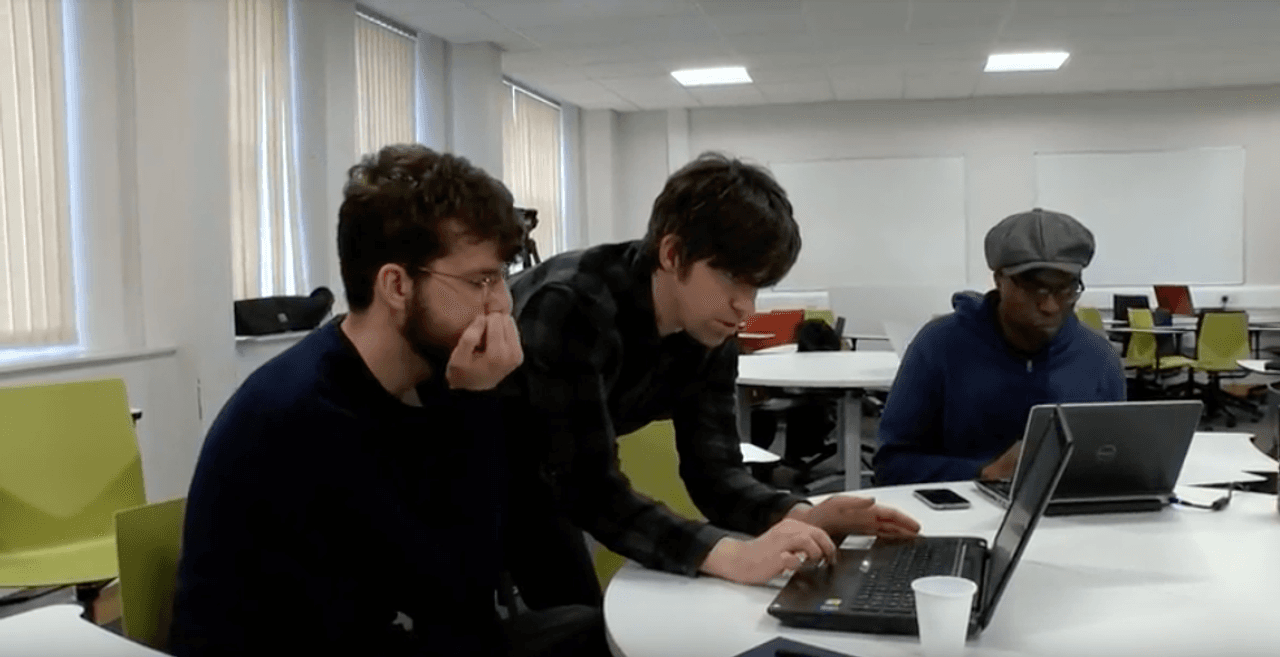
How our council spending investigation reached outside traditional newsrooms
We’ve got 160 collaborators, 20 local stories and counting
Our investigation into council spending in England was the largest data project ever undertaken by the Bureau - and with that we needed more hands on deck than ever before.
We organised a day-long, collaborative reporting event in five cities, which we called our Big Council Budget Hack. We did this in order to open up the data we collected and gather people around it.
Across Newcastle, Leeds, Manchester, Coventry and London, 160 local people turned up on a rainy Saturday to scrutinise council budgets.
Last time we attempted something like this, we were sprinting to prepare voter registration data for the 2017 snap general election and ended up holding a hack day a week before polling day. That event was predominantly focused on journalists and resulted in 65 collaborators, 18 local stories and a national exclusive.
What made the council budget hack different was our decision to bring a wider variety of people together. With 353 English councils making increasingly tough spending decisions, we knew cuts would be hitting people everywhere and wanted to include as many different experiences in our reporting as possible.
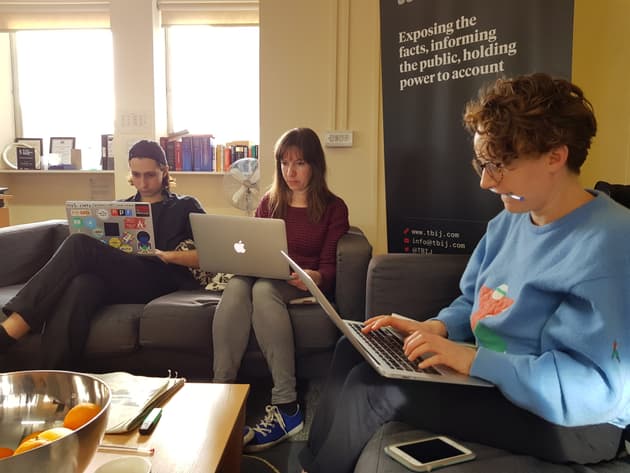 The Bureau Local team prepares for the hack day
Photograph: Casey Whiting
The Bureau Local team prepares for the hack day
Photograph: Casey Whiting
In order to better understand the pressures facing local authorities we held a roundtable in January with a range of experts, including local government officials, academics and campaigners.
We also organised data partners in our hack day cities, to help us refine our work and field questions on the complex datasets that would be available on the day.
The largest cohort of signups was, perhaps unsurprisingly, journalists but one in five were students and around one in seven identified themselves as ‘wild cards’. Data nerds, techies and local government experts also came along and helped on the day.
Our partners and hosts included Coventry University, Leeds Trinity University, London’s Goldsmith’s University, BBC North East, Newcastle University’s Civic Journalism Lab, the Co-op’s Federation House, the University of Central Lancashire, Data Unlocked, Open Data Manchester, the Open Data Institute Leeds, the Women’s Budget Group and tech firm AQL.
The collaboration had produced 20 local stories so far and national stories with The Times and ITN.
Umar Hassan, a journalist with the British Asian magazine DESIblitz, who came to the hack day in Coventry, said:
“I'm fascinated by data and I'm always looking for a challenge so this Budget Hack was the ideal opportunity for me to get my hands dirty and combine my journalistic wit with my inner data nerd.”
He added: “As local news becomes less of a priority, I think it’s important that local communities get the news they deserve and that these kind of events are available so journalists like us [get the opportunity] to produce groundbreaking journalism.”
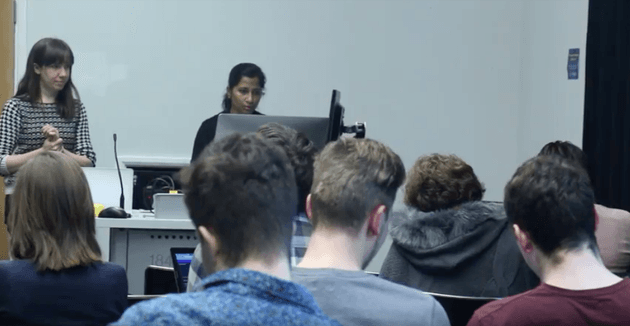 The Bureau Local council finances hack day in Coventry
Photograph: Michal Wojtczak
The Bureau Local council finances hack day in Coventry
Photograph: Michal Wojtczak
Hitting the headlines across the country
In the week following the hack day we used the data we pulled together to identify five key issues that caused Northamptonshire to be the first council in 18 years to ban almost all new spending after being unable to balance its budget.
We then compared these factors against the financial records of every council in England and revealed Surrey to show four out of five of the signs of severe financial stress. We also revealed that councils were dangerously close to brink” as half plan to cut spending on vulnerable children.
We partnered with the Times on a piece it published, entitled: Surrey, UK’s richest county, hit by £100m cash crisis”.
A variety of reporters - from those working on weeklies or dailies to freelancers and students - took part on the hack day. They dug deeper into local council spending in the days and weeks after the event.
Birmingham Eastside was the first local website to publish its story, which analysed the huge drop in spending on anti-obesity schemes, viewed in light of the fact that the West Midlands has the worst rate of physical activity in the UK.
We saw great local stories using the budget data from James Rodger at the Coventry Telegraph, James Somper at Somerset Live, Stewart Carr at Luton Today, Chris Burns at the Yorkshire Post, and freelancer John Brace in Merseyside.
Tom Bristow, at the Norwich Evening News, went straight to the local council leader, who told him: “We’re not another Northamptonshire”.
On children’s services, Matty Edwards at the Bristol Cable reported on “imminent” job losses at Bristol Council, whilst Ian Hirst at the Halifax Courier analysed the same data, to see how his local council compared.
The North West Evening Mail’s Caroline Barber found that Cumbria is set to double pay to foster carers, in a bid to cut overall spending on children’s services.
And, on a similar theme, Matt Richards at Devon Live looked into how the £2.5m a year Devon County Council spends on temporary staff in children’s services is pushing up costs overall.
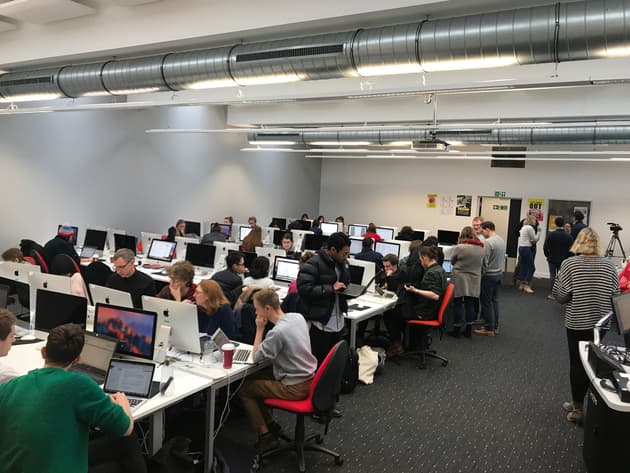 The Bureau Local council finance hack day in London
The Bureau Local council finance hack day in London
The Big Council Budget Hack Day was open to all
Local councillors, a care worker, a disabled woman and her carer, a mum and her child, coders, statisticians and academics were among those who joined journalists on the day.
We saw people from different sectors come together to solve problems and the stories and projects that came out of this event reflected that diversity.
Following on from the hack day the Women’s Budget Group built an equality impact assessment toolkit and Bureau Local member Kate Cronin used it for a story for the Northamptonshire Telegraph.
Meanwhile Rob Radburn, self-confessed Tableau Zen Master at Leicester County Council, took to his Data Beats blog to put his skills to the question: ‘are local councils too big to fail?’.
ODI Leeds also used the Bureau Local data to visualise spending by Leeds City Council from 2011 to 2017.
Several of the international students in Newcastle made a film about what was happening in the city and why they, as newcomers to the city, care about the proposed cuts to somewhere they have come to love.
Software developer Diane Reddel, took a good look at the poor accessibility of council budget documents for disabled people.
Ann Scofield, a Labour member for Elswick ward on Newcastle City Council, was one of the councillors who made it out on the day. She said:
“I’m a city councillor for one of the most deprived areas of the country and it’s very important that we get the right information out into the media about why people are in poverty, what their big issues are, why they’re unhappy, why their health is bad.
“That’s why I think events like this are really important and I’m really interested in what’s going here.”
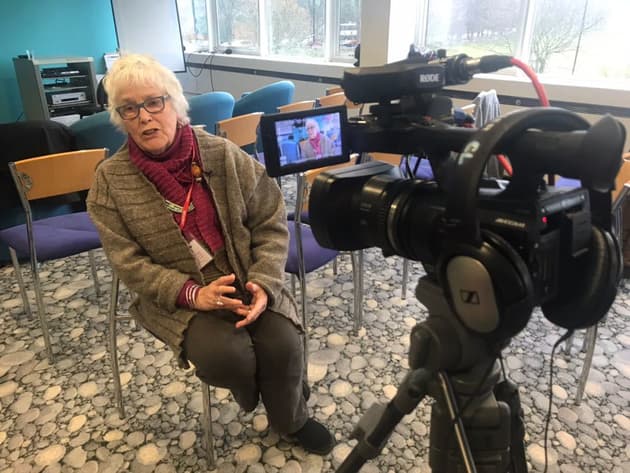 Ann Scofield, pictured at the Newcastle hack day
Ann Scofield, pictured at the Newcastle hack day
Continuing the story
As the story evolved and we were able to reveal the name of three more councils that met our Northamptonshire stress tests, James Illingworth at the Lancashire Post got the front page with his story about the council raiding its “rainy day fund” to plug its funding gap.
Tom Bristow, meanwhile, explored how Norfolk failed three of the Bureau’s five tests in his piece for the Eastern Daily Press.
The Bureau worked with ITN to pull together a national picture for ITV News. In its report, the Lancashire council leader said that counties needed extra government cash to avoid financial disaster.
The Times partnered with us again with a follow-up story, warning: “Three more Tory councils slip into bankruptcy danger zone”.
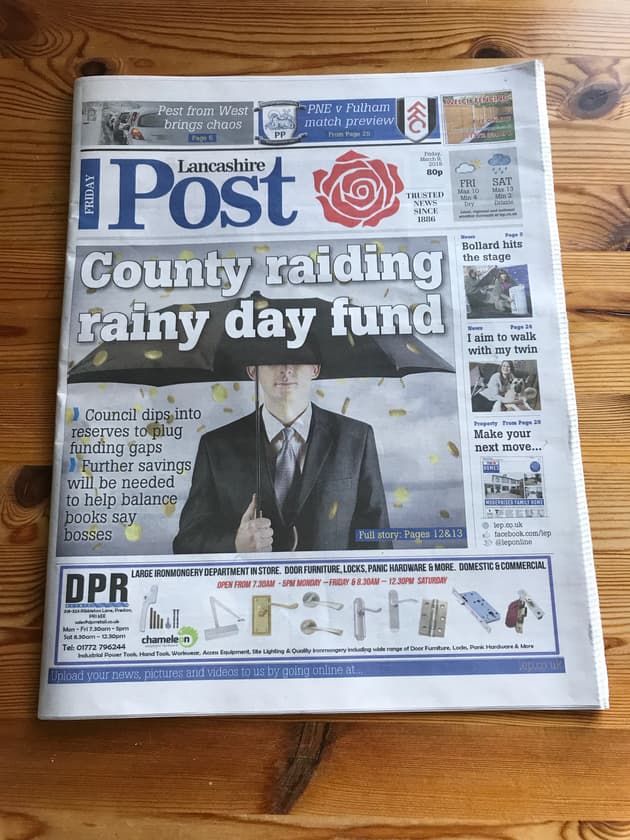 Lancashire Post front page on council finances
Lancashire Post front page on council finances
How to investigate your council
The Bureau Local continues to investigate this issue to help ensure more reporting gets done on this relatively unscrutinised area of government.
You can explore your council’s finances by following our reporting recipes below that act as how-to guides for all of the stories we have worked on.
Become part of the Bureau Local network. Investigate issues locally and collaborate with others around the UK to get national reach.
Join hereHeader image, of the Bureau Local council finances hack day in Leeds, courtesy of Peter Hampshire.




